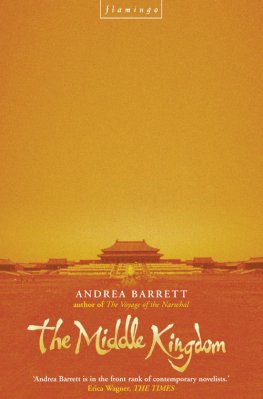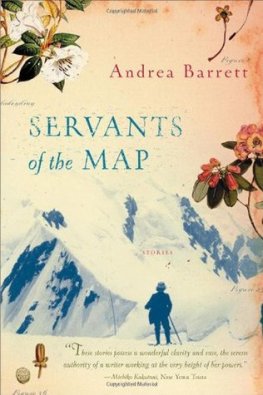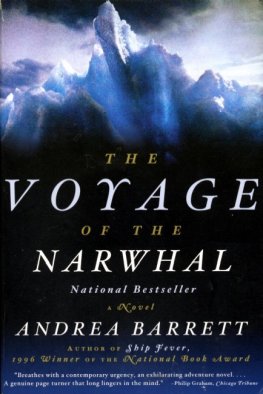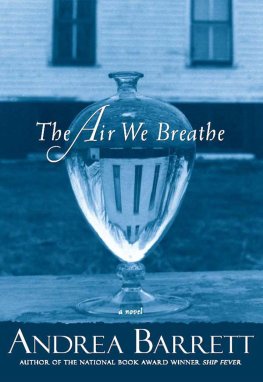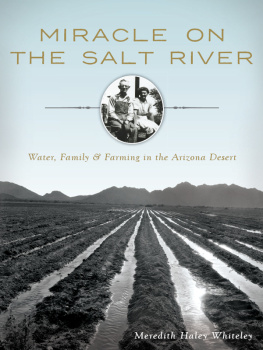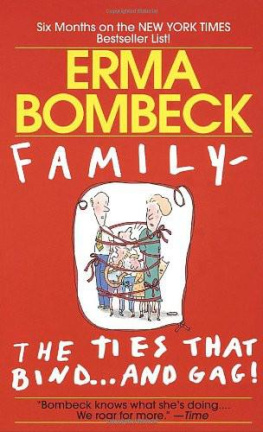Andrea Barrett
The Forms of Water
For Margot Livesey,
who helped me find my way
Part I The Deceitful Heart
HENRY AUBERON, NEARING FIFTY AND WITHOUT A CAR, SAT IN a shabby living room that didnt belong to him. The tenant before him had had a cat, which had shredded the armchair and sprayed on the rugs. A water-stained book propped the window open; the gutter above the window leaked and the foundation below it shed chunks of mortar the size of finger bones. Had the house been his, Henry would have fixed these problems instantly. But the house belonged to his sisters ex-husband, who had grudgingly offered it when Henry had found himself with nowhere else to go.
The house was for sale and might disappear from under him at any minute, but Henry refused to think of what would happen then. He sat in his armchair and refused to think of his own lost home or of the wreckage he had made of his grandparents farm in Coreopsis. He refused to think of the foreclosures, the bankruptcy proceedings, the shame, the failure, his amazing errors; he refused to think of his wife, who had thrown him out; he refused to think of the drunken accident that had cost him his drivers license and reduced him to walking to the temporary job that he also refused to consider, his three-to-eleven shift at the box factory near the Rochester stadium.
Henry refused all this; he refused it absolutely. Instead, on Friday night, just after midnight, aware every minute that he had to rise at six to catch the chain of buses that would take him to the nursing home for his weekly visit to his uncle instead, Henry closed his eyes and thought of the places he yearned to visit and never had.
He imagined himself in St. Croix, scuba diving along the reefs and following his bubbles back to the surface. He pictured himself in South America, nose to nose with an anaconda; with the gorillas in Rwanda or the Patagonian penguins. Belize, Zaire, Alaska, Spain until his life had collapsed, six months ago, hed relaxed at night by reading travel books and plotting how he might get from here to there. Although he had never, except for a few brief trips to Toronto, left the eastern United States, he had planned for years to retire young and explore.
And now here he was, no longer young, trapped in a dead-end job with no future he could see. Having lost his house, his daughters, his friends, his wife, he was left with the travels he could imagine. Caucasia, the Black Sea, the Gobi Desert. The Himalayas and then Bombay. He carried visions of these places to the box factory and held them to him while his machines spewed out sheets of corrugated board printed the wrong colors, slit and scored in the wrong places, glued into improbable shapes. Then at night, in this place he refused to call home, he rolled in his fantasies.
Bujumbura, Madagascar. Apparently he had lost his sister as well. Earlier, as hed been walking home, a lit storefront window had caught his gaze. In front of a group of people perched on orange chairs had stood a woman who gestured like Wiloma. He had stopped and pressed his face to the glass and cupped his hands around his eyes to cut the glare from the streetlights. That was her, there was no doubt about it: Wiloma, trying to lead another group of people down on their luck to the glories of her newfound religion. In the old days, before her conversion, she would never have ventured into this run-down part of Rochester after dark. Now, he knew, she made these missions twice a week.
He had stared through the window and tried to decipher what she was saying. When her mouth stopped moving, he had tapped gently on the glass. Her face looked so open and animated that foolishly, unthinkingly, he had assumed she would welcome him. Luck had brought her to him, hed thought; hed been thinking about her all week, since his last visit to his uncle. Thinking about her and longing to ask her what she knew about their uncles land. That huge parcel near the Paradise Valley, which Henry had always assumed was long gone but which their uncle still, mysteriously, ownedhalf will be yours, his uncle had said, as blandly as if he hadnt kept its existence a secret for forty years. After I die, half will be yours, and half will be Wilomas.
Wiloma had looked right at the window. She had seen him, he knew she had. Then she had turned her head away and started moving her lips again. He had stepped back from the window, wounded but not entirely surprised. His family sprouted siblings in pairs, as if no other pattern were possible his father and his uncle, he and Wiloma, his own two girls and Wilomas daughter and son but Wiloma had severed their connection and cut him off from the communion he deserved. Since Coreopsis Heights had failed, shed been very cool to him.
In his dark apartment, among the broken lamps and the rank purple carpets, Henry thought of the land his uncle had kept secret from him and then of Wiloma, cut off from him once by a sheet of glass and then again by her refusal to see him. This pained him so much that he squeezed his eyes shut and sent himself to a beach on Hiva Oa.
A white bird landed in one of the palm trees swaying near the rocks. Huge waves broke on the shore. The Marquesas were volcanic islands, Henry remembered reading; they rose straight up from the sea. The trees burst into red flowers and lianas trailed to the ground. A flat-faced woman rented Henry a house and loaned him a spotted horse, and as he galloped along the black sand he saw waterfalls thundering down the cliffs and in the distance, bearing down on the island, the ship that visited once each month. He blurred the horses feet beneath him, blurring with them the fact that he didnt know how to ride.
The ship came, he imagined, to buy the dried coconut meat the islanders harvested and also to deliver mail. On the ship were two letters for him. Come back, his wife and daughters had written in one. All is forgiven. The bank made a mistake Coreopsis Heights is making more money than you can imagine. Wiloma had scrawled the other letter on the back of a faded photograph of their grandfather. Da, who had been dead since 1961. Why did you leave us? she had written; nothing more.
But Henry didnt want to think about Da. He opened his eyes, went up to bed, closed his eyes again, went to sleep. He dreamed of the day he and Wiloma had first come to Das farm in Coreopsis. In his dream his parents were still alive and the fields were covered with smooth snow and bore no resemblance to the sea of choppy mud hed made from them. There were willows, leafless and yellow-branched, down by the water.
He woke feeling very tired. The coffee he bought at the corner was cold and the second bus was crowded. At the stop for St. Benedicts Nursing Home, he had to push his way through a group of young men before he could get off the bus, and then he saw that he was already late. His uncle Brendan, eighty years old, had already rolled his wheelchair down the sidewalk to his favorite perch, next to the stoplight at the intersection of Ashton and West. The brakes on the chair were set and a blanket was draped over his twisted legs despite the warm June sun. His uncle looked like a troll, Henry thought. He acted like a child. He understood so little about the world that he had not, apparently, even realized that the land he owned might have saved Henry from his disgrace.
Fine day! Brendan was calling to a woman in a blue Toyota. She was stopped at the light where, every morning, Brendan carried on shouted conversations with people trapped for the time it took for red to turn to green. He sat there even during the winter, bundled in blankets and gloves and a hat, but dependent, then, on strangers kind enough to reach over and roll down their windows.


